
CORDIALS FROM YOUR KITCHEN
Pattie Vargas and Rich Gulling
 Storey Publishing
Storey Publishing
For Kirsten, Trey, and Nicholas
for their patience and understanding.
The mission of Storey Publishing is to serve our customers by publishing practical information that encourages personal independence in harmony with the environment.
Edited by Pamela Lappies
Cover design by Leslie Morris Noyes and Erin Lincourt
Cover photograph by A. Blake Gardner
Text design by Cindy McFarland
Production by Sarah Crone and Erin Lincourt
Wood cuts by Charles Joslin
Line drawings by Brigita Fuhrmann
Indexed by Northwind Editorial Services
1997 by Pattie Lee Vargas and Richard Dale Gulling Jr.
All rights reserved. No part of this book may be reproduced without written permission from the publisher, except by a reviewer who may quote brief passages or reproduce illustrations in a review with appropriate credits; nor may any part of this book be reproduced, stored in a retrieval system, or transmitted in any form or by any means electronic, mechanical, photocopying, recording, or other without written permission from the publisher.
The information in this book is true and complete to the best of our knowledge. All recommendations are made without guarantee on the part of the authors or Storey Publishing. The authors and publisher disclaim any liability in connection with the use of this information. For additional information please contact Storey Publishing, 210 MASS MoCA Way, North Adams, MA 01247.
Storey books are available for special premium and promotional uses and for customized editions. For further information, please call 1-800-793-9396.
Contents
INTRODUCTION
W hen we wrote Country Wines, our first book on homemade spirits, our goal was to share the fun of making them with folks who thought the process was difficult and mysterious. Judging from the response, we succeeded quite well.
But the urge to try something new is ever present in our respective kitchens, and a gift of homemade Irish Cream inspired us to try our hands at making liqueurs. What fun!
Homemade liqueurs have many of the advantages of homemade wines. They can be tailored to your taste, the variations are almost endless, they satisfy your creative urge, they make wonderful gifts, and they are scrumptious additions to a variety of foods.
Liqueurs, or cordials, as they are often called, are easier to make and much less expensive than their commercial counterparts. They also are curiously complementary to the fast-paced society in which we live. Even if you start in December, you can make many of the delicious cordials in this book in time for Christmas. Although cordials do require aging, the time needed to make them mellow and delicious is short. Cordials require no special treatment or unusual equipment, and success is ensured if you follow the recipes.
Since you wont be distilling the alcohol for your cordials and will have paid the alcohol tax when you bought it, you wont risk running afoul of the Bureau of Alcohol, Tobacco, and Firearms. As long as you dont sell your creations, you can experiment to your hearts and taste buds content.
A few of the recipes in this book are our attempts at recreating the flavors of some well-known cordials. Most, however, are our own creations, refined from numerous experiments following a great deal of research. We hope that you enjoy these recipes as much as we enjoyed developing them, and our friends enjoyed sampling them. We also hope that youll experiment with your own recipes, feel free to vary ours, and, most of all, have fun.
CHAPTER 1
GETTING STARTED
D istilled liquors are the sophisticated cousins of wines, but just as no one is sure who discovered the process of wine making, no one knows for sure who discovered and named the process of distillation. Some credit Hippocrates in about 400 B.C. We do know that the term distillation comes from the Latin word distillare, which means to drop or to trickle down.
We also know why the process works. Alcohol and water boil at different temperatures. Using this principle, a distiller can heat wine to the temperature at which ethyl alcohol boils (173F), and the alcohol will turn to vapor. If the distiller then captures the vapor and cools it below 173F, it will condense into liquid alcohol.
Most experts believe that the Chinese distilled alcohol from rice wine as early as 800 B.C. The Greeks and Egyptians also used distillation, and in about 400 B.C., Aristotle wrote on distilling seawater and recapturing fresh water from the process. The first recorded instance of making alcoholic beverages through distillation dates to A.D. 900, when monks and alchemists in Europe employed the process and experimented with numerous ways of using the fiery liquid that resulted.
During the thirteenth and fourteenth centuries, physicians and chemists believed that herb liqueurs could treat and prevent illnesses. In some cases, they may have been correct, since many modern-day medicines are based on plant extracts and some still have alcohol bases. Even if the mixtures werent medicinal, those who drank them probably felt better, if only for a short time. Adding sweeteners to the mixtures may have been an attempt by herbalists to make their brews more palatable.
In that, they surely succeeded. Adding other flavoring agents was a logical next step. Liqueur making flourished in fifteenth-century Italy in the villas of Catherine de Mdici, then spread to France and England. Many of todays liqueurs trace their lineage to those times. Today, as in the past, some of these recipes remain closely guarded secrets, especially those for some herb liqueurs, which may contain dozens or even scores of different herbs in varying proportions. But dont be daunted by liqueur makings long tradition. You can make some very simple and tasty recipes at first, then get more daring as you gain experience.
Liqueur or Cordial?
In Europe, alcoholic beverages with a high sugar content and flavoring agents consisting of herbs, nuts, fruits, spices, and creams are called liqueurs. In the United States, these beverages are usually called cordials.
The legal definition of a cordial varies somewhat according to location. New York and New Jersey, for example, defines it as an alcoholic beverage containing at least 2.5 percent sugar.
Choosing Ingredients
Your shopping list for liqueur ingredients can be relatively short or long and complex, but most cordial ingredients fall into definite categories alcohol bases, sweeteners, and flavorings. As long as your liqueurs have something from each category you will end up with an acceptable cordial. Lets look at these one at a time.
Alcohol Bases
Most cordials range from 17 to 30 percent alcohol by volume, but some have as much as 50 percent. For that reason, the alcohol base you choose is important. Remember that good-quality ingredients result in good-quality liqueurs. Dont buy the cheapest liquors to use in your liqueurs, but you dont need to buy the most expensive either. Since the other ingredients will be the liqueurs primary flavoring components, some of the subtleties of expensive liquors will be masked anyway. Choose a low- to mid-priced liquor and taste it. If it is free of off flavors tastes that are non-standard for a particular liquor or flavors you just dont like, it will be suitable for making liqueurs.
Next page
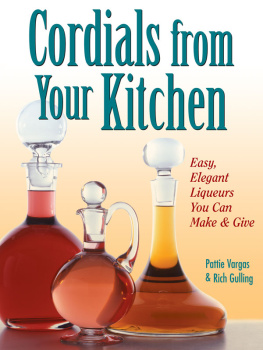
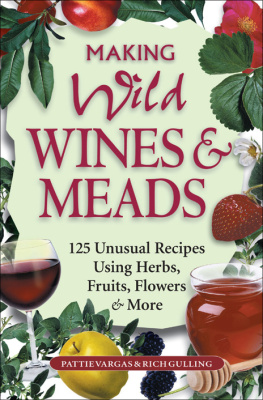
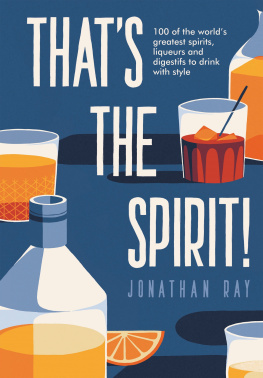
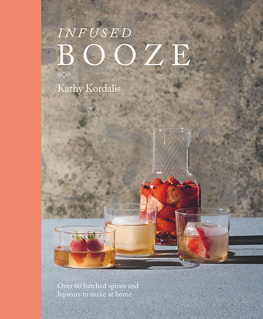
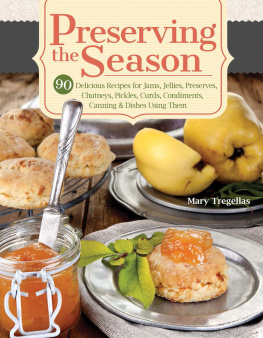

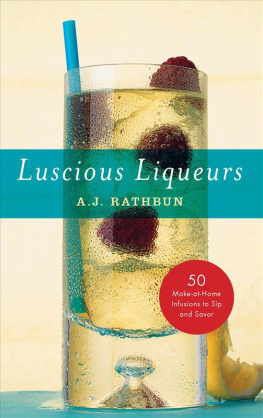
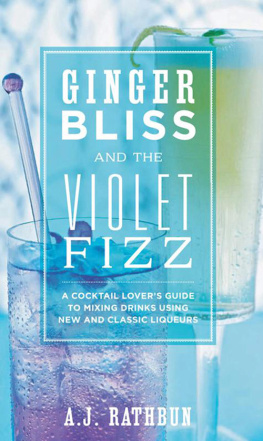
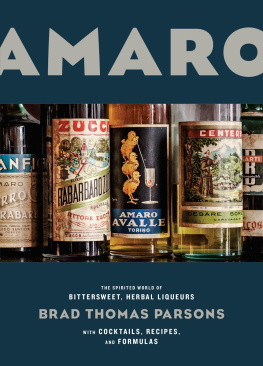
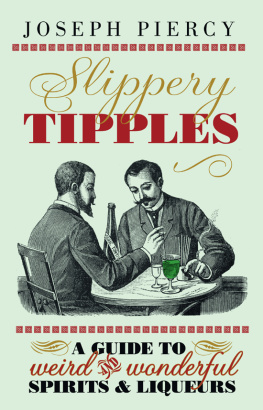
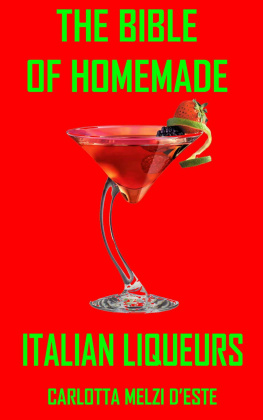

 Storey Publishing
Storey Publishing